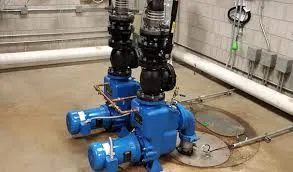Hungarian
- Afrikaans
- Albanian
- Amharic
- Arabic
- Armenian
- Azerbaijani
- Basque
- Belarusian
- Bengali
- Bosnian
- Bulgarian
- Catalan
- Cebuano
- Corsican
- Croatian
- Czech
- Danish
- Dutch
- English
- Esperanto
- Estonian
- Finnish
- French
- Frisian
- Galician
- Georgian
- German
- Greek
- Gujarati
- Haitian Creole
- hausa
- hawaiian
- Hebrew
- Hindi
- Miao
- Hungarian
- Icelandic
- igbo
- Indonesian
- irish
- Italian
- Japanese
- Javanese
- Kannada
- kazakh
- Khmer
- Rwandese
- Korean
- Kurdish
- Kyrgyz
- Lao
- Latin
- Latvian
- Lithuanian
- Luxembourgish
- Macedonian
- Malgashi
- Malay
- Malayalam
- Maltese
- Maori
- Marathi
- Mongolian
- Myanmar
- Nepali
- Norwegian
- Norwegian
- Occitan
- Pashto
- Persian
- Polish
- Portuguese
- Punjabi
- Romanian
- Russian
- Samoan
- Scottish Gaelic
- Serbian
- Sesotho
- Shona
- Sindhi
- Sinhala
- Slovak
- Slovenian
- Somali
- Spanish
- Sundanese
- Swahili
- Swedish
- Tagalog
- Tajik
- Tamil
- Tatar
- Telugu
- Thai
- Turkish
- Turkmen
- Ukrainian
- Urdu
- Uighur
- Uzbek
- Vietnamese
- Welsh
- Bantu
- Yiddish
- Yoruba
- Zulu
Telephone: +86 13120555503
Email: frank@cypump.com
nov . 19, 2024 10:08 Back to list
horizontal centrifugal oil pump/chemical pumps
Understanding Horizontal Centrifugal Oil Pumps A Focus on Chemical Applications
Horizontal centrifugal oil pumps have become an essential tool in various industries, particularly in the field of chemical processing. Their design and operational efficiency make them suitable for transporting liquids, including various types of oils and chemicals. This article explores the features, benefits, and applications of horizontal centrifugal oil pumps, highlighting their relevance in chemical engineering.
Design and Functionality
The horizontal centrifugal pump operates on a simple yet effective principle it converts mechanical energy from a motor into hydraulic energy that moves fluid. Its design consists of an impeller, a motor, a volute casing, and various fittings that facilitate the entry and exit of the fluid. The impeller, typically made from durable materials, plays a crucial role in generating flow and pressure. As the motor spins the impeller, it imparts kinetic energy to the fluid, which is then transformed into pressure energy as the fluid exits the pump.
One of the significant advantages of horizontal centrifugal pumps is their ability to handle a wide range of flow rates and pressures. This versatility is crucial in chemical applications, where the properties of the fluids can vary significantly depending on the process.
Advantages in Chemical Processing
1. Efficiency Horizontal centrifugal oil pumps are known for their efficiency in moving fluids. When dealing with chemicals that have different viscosities and densities, these pumps ensure that the desired flow rates are maintained while minimizing energy consumption.
2. Durability Chemical environments can be harsh, often involving corrosive substances. Horizontal centrifugal pumps are designed using materials that can withstand these conditions, including stainless steel, nickel-based alloys, and special coatings that provide resistance to corrosion and wear.
3. Easy Maintenance The horizontal design of these pumps simplifies maintenance. They can be easily accessed for routine inspections, repairs, and replacements without the need for extensive disassembly. This feature is particularly beneficial in chemical processing facilities, where downtime can lead to significant financial losses.
horizontal centrifugal oil pump/chemical pumps

4. Customizable Horizontal centrifugal pumps can be tailored to meet specific operational requirements. Different impeller designs can be utilized to accommodate various fluids, and pumps can be equipped with features like variable frequency drives (VFDs) for better control over flow rates.
Applications in the Chemical Industry
In the chemical industry, horizontal centrifugal oil pumps are used for multiple applications, including but not limited to
- Fluid Transport They are ideal for transferring raw materials, intermediates, and finished products between different stages of production.
- Cooling Systems These pumps are also used in cooling systems where chemical reactors need to be maintained at optimal temperatures.
- Circulation In processes that require the circulation of chemicals, such as in polymer production or refining operations, horizontal centrifugal pumps provide the necessary flow and pressure stability.
- Transfer of Hazardous Chemicals With proper design and materials, these pumps can safely handle hazardous and toxic chemicals, ensuring safety in production environments.
Conclusion
Horizontal centrifugal oil pumps are integral to the efficiency and safety of chemical processing industries. Their robust design, coupled with efficient performance, makes them suitable for various applications involving oils and chemicals. As industries continue to evolve and demand higher efficiency and reliability, the role of horizontal centrifugal pumps will undoubtedly expand, solidifying their place as a cornerstone in the realm of chemical engineering. Investing in high-quality horizontal centrifugal pumps can yield long-term benefits, ensuring smooth operations and reduced maintenance costs in the fast-paced world of chemical manufacturing.
-
High-Performance Air Pumps for Sand & Gravel | Efficient Transport
NewsAug.03,2025
-
ISG Series Vertical Pipeline Pump - Chi Yuan Pumps Co., LTD.|Energy Efficiency, Corrosion Resistance
NewsAug.03,2025
-
ISG Series Pipeline Pump - Chi Yuan Pumps | Energy Efficiency&Compact Design
NewsAug.03,2025
-
ISG Series Vertical Pipeline Pump - Chi Yuan Pumps Co., LTD.|High Efficiency, Low Noise, Durable
NewsAug.02,2025
-
ISG Series Vertical Pipeline Pump - Chi Yuan Pumps | High Efficiency, Low Noise
NewsAug.02,2025
-
ISG Series Vertical Pipeline Pump- Chi Yuan Pumps Co., LTD.|High Efficiency&Compact Design
NewsAug.02,2025










